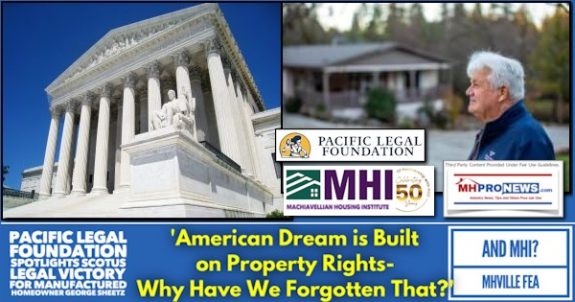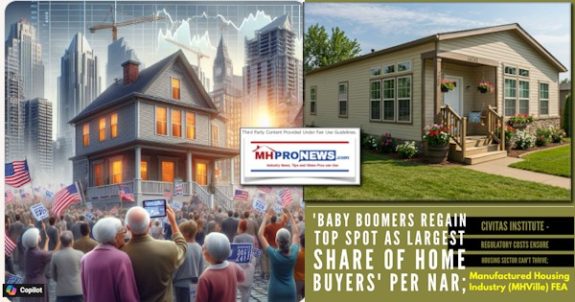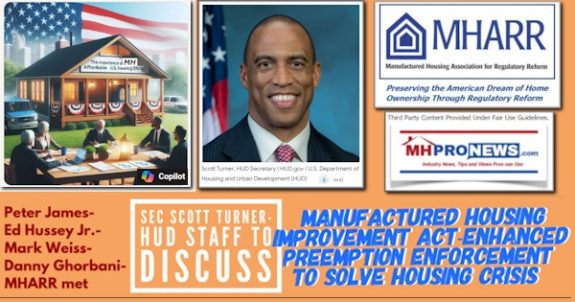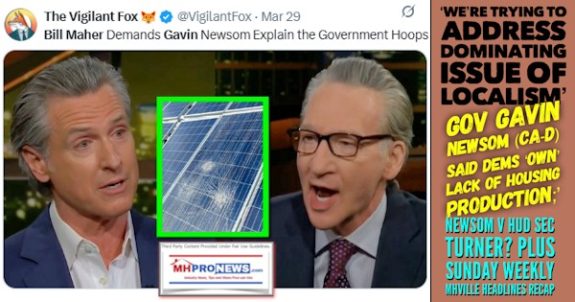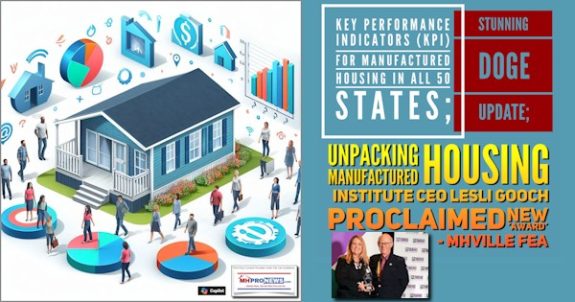MHI to Testify on Impact of Dodd-Frank on Manufactured Housing
MHI will testify July 11th at a hearing before the House Financial Services Subcommittee on Financial Institutions and Capital Markets on the impact of the Dodd-Frank Act’s home mortgage reforms. MHI, the only manufactured housing industry association to testify, will be appearing with other leading organizations from the housing industry, including the Mortgage Bankers Association of America, National Association of Homebuilders and the National Association of Realtors to highlight potential impacts of the Dodd-Frank Act on the housing markets. Tom Hodges, General Counsel, Clayton Homes, Inc. will be representing MHI during the hearing and will discuss some of the law’s unintended consequences that serve to limit the availability of credit for the purchase of manufactured housing. In addition, he will highlight some of the modest relief provided for the industry and consumers in legislation (H.R. 3849) introduced by Reps. Stephen Fincher (R-TN), Joe Donnelly (D-IN) and Gary Miller (R-CA). To view a webcast of the hearing,click here or visit financialservices.house.gov. For more information on H.R. 3849, click here.
Dodd-Frank and CFPB Updates
CFPB Issues Final Rule on Privileged Information
On July 5th, the CFPB issued a final rule intended to codify protections for privileged information submitted by CFPB-regulated entities. The rule asserts that an entity providing privileged information to the CFPB does not waive any applicable privilege with respect to third parties. In addition, the final rule clarifies that the CFPB’s transfer of privileged information to another federal or state regulator also does not result in a waiver of any applicable privilege. To view the final rule, click here
CFPB Launches Consumer Complaint Database
On June 19th, the CFPB announced it will begin making public all individual-level consumer complaint data received by the agency. Currently, the Bureau maintains a database that allows for public viewing of credit card complaints. However, the CFPB is considering (and seeking public comment) on expanding the database to cover all financial services and entities under CFPB’s jurisdiction. According to the CFPB, when a consumer files a complaint, the agency will review for completeness, jurisdiction and non-duplication. Complaints will then be forwarded to the appropriate company (bank or nonbank) for review and resolution. Companies will be given 15 days to provide a substantive response to each consumer complaint and are expected to resolve most complicated complaints within 60 days. For more information, click here.
Community, Modular and Manufactured Home Lending Could Feel Sting of Basel III Capital Rules
On June 18th, the law firm K&L Gates issued a report (click here) analyzing the potential impact that new capital reserve requirements that are being considered by the Federal Reserve would have on residential mortgage lending activities. Three sets of proposed regulations would set risk-based capital rules for banks to make them consistent with the new international capital standard, known as Basel III. Conventional residential mortgage loans with LTVs greater than 80 percent, regardless of the presence of private mortgage insurance, could trigger material adverse capital requirements if the loans are held for investment and do not comply with certain underwriting criteria. Of particular concern is that, if banks price loans to account for the increased capital requirements, they may trip “high cost” triggers in Dodd-Frank to which manufactured home personal property loans are already susceptible and make the loans virtually “toxic.” In addition, according to analysis by the American Banking Association (click here), construction and commercial real estate loans could be subject to tougher capital requirements, potentially making them less attractive to banks. Basel rules would require certain development loans to carry a 150 percent risk weighting. The rule would cap the amount of leverage banks can use in making loans, leading lenders to look for deals where a developer would put in a significant amount of cash equity. Banks would be less likely to let developers rely just on the equity from appraisals. Better-capitalized banks would be more likely to consider construction loans.
CFPB Seeking Comments on Compliance Costs
On June 14th, the CFPB issued a request for comments related to the cost of complying with new and proposed rules. The Dodd-Frank Act calls for the Bureau to consider the potential benefits and costs of certain rules to consumers and “covered persons,” including depository and non-depository providers of consumer financial products and services. This includes an assessment of the impacts of rules on consumers in rural areas and on depository institutions and credit unions with total assets of less than $10 billion. In its notice, the CFPB states that it “seeks to collect qualitative information from industry participants regarding the compliance costs and other effects on providers and consumers, both as to existing regulations in force as well as to proposed new regulations. Through the collections under this generic clearance, the Bureau aims to understand the effects of potential regulations on providers and consumers, the ways in which providers may comply with potential regulations, and the costs associated with compliance.” To view the notice, click here.
CFPB Finalizes Rules on Official Notification, Adjudication and Investigations
On June 29th, the CFPB finalized three rules:
• State official notification—establishes procedures by which state officials notify the CFPB of actions undertaken pursuant to the authority granted to states to enforce the Dodd-Frank Act. Click here for more information.
• Adjudication proceedings—Dodd-Frank authorizes the CFPB to conduct administrative adjudications to ensure or enforce compliance with any law under the jurisdiction of the Bureau; the rule establishes rules of practice related to these proceedings. Click here for more information.
• Investigations—the Dodd-Frank Act authorizes the Bureau to investigate whether any person has engaged in activity that violates any aspect of federal consumer financial law; the rules set forth the parameters that govern CFPB investigations. Click here for more information.
Congress Finalizes Extension to Federal Flood Insurance Program
Last week, the Congress passed and the President signed into law a five year extension of the Federal Flood insurance program, thereby ensuring the availability of affordable flood insurance to more than 5.6 million businesses and homeowners who rely on it.
After years of short-term extensions, Democrats and Republicans finally compromised on changes that will reduce the federal liability while continuing a program required by lenders for the purchase of property in flood-prone locations. The compromise amendments supported by Republicans, many of whom wanted to end the program altogether, require a four year phase-out of rate subsidies for non-primary residences. Part-time residents of many communities will begin to see rate hikes immediately, as the first of the phase-in increases started July 2012.
The compromise prevents a potentially catastrophic lapse of the National Flood Insurance Program which subsidizes rates for flood insurance. According to the National Association of Realtors, a lapse in insurance would have affected 1,300 loan transactions a day, or nearly 40,000 a month. The new law will bring certainty to real estate transactions in more than 21,000 communities nationwide where flood insurance is required for a mortgage.
Manufactured Home Shipments Rise for Fifth Consecutive Month in 2012
The month of May 2012 saw 5,197 new manufactured homes shipped (not including current month destination pending homes), up 16.1 percent from May 2011 numbers. Increases were across the board with shipments of both single-section and multi-section homes up compared with the same month last year.
Compared to 2011, 2012 has recorded shipment increases every month so far. For the first five months of this year, shipments totaled 22,627 homes compared with 18,125 homes in 2011, a net increase of 24.8 percent.
May 2012 saw 45 corporations operating 122 manufacturing facilities, the same number as this time last year.
Spring/Summer 2012 Issue of Community Connections Now Available
The Spring/Summer 2012 issue of the National Communities Council’s electronic newsletter, Community Connections, is now available. Centered on the theme “Good Ideas,” the newsletter features a profile of an award-winning community located in the Midwest, interviews with leaders of award-winning land-lease communities on their strategies for success, as well as a look at the trend of land-lease communities incorporating rental homes. MHI members can view the newsletter by clicking here or visitingwww.mhcommunities.org.





















